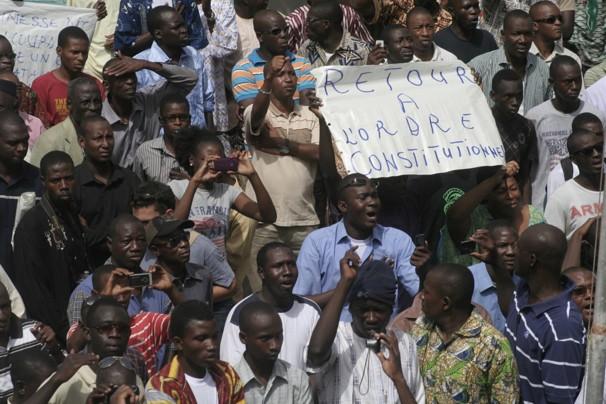African Infrastructure Investment Survey

Private sector perspectives on risks and opportunities
The Infrastructure Consortium for Africa (ICA) has launched a new survey to capture private sector views on the challenges of implementing infrastructure projects in Africa across the energy, water, transport and ICT sectors.
The online survey, which has been designed by UK-based business intelligence company Cross-border Information (CbI), will complement the ICA’s established work promoting increased investment and development of infrastructure in Africa and tracking infrastructure financing trends.
The African Infrastructure Investment Survey looks at factors such as:
“¢ top investment locations
“¢ risks to be addressed
“¢ delays in project implementation
“¢ best returns
“Some of the most successful African infrastructure projects have relied on public and private sector investment. This annual survey aims to initiate a better understanding of private sector investment concerns and motivations, in order to help governments, DFIs and multilateral finance institutions shape more attractive investment opportunities and successful projects” said CbI managing director Mark Ford.
The survey comes at an important time for African infrastructure investment. ICA members, which include the G8 countries, South Africa, African Development Bank, Development Bank of Southern Africa, European Commission, European Investment Bank, and the World Bank Group, reported a 57% annual rise in commitments for 2012 to $18.7bn and a 47% increase in disbursements to $12.8bn.
Figures for 2012 showed a promising upturn in new commitments, following a significant dip in 2011 but more progress is required to remove the technical and policy blockages that have tended to slow down the implementation of essential infrastructure development projects.
Through the collated and analysed results, private sector respondents will be able to compare their experiences with peers and discover how their views fit with the wider private sector picture. Respondents to the ICA’s first private sector survey, conducted for its 2012 annual report, identified partner risk as the main consideration to be taken into account when deciding whether to invest, followed closely by concerns about the legal and regulatory environment and political risk.
“The new survey will more closely examine variations in risk perception between investors from different countries and the infrastructure industries in which they are investing, as well as their investment intentions for projects within the energy, water transport and ICT industries over the next five years”, said Mark Ford.
Information submitted though the survey will be used and displayed only in an aggregated form. Individual responses will remain confidential.The ICA is separately surveying its members.
The results of both surveys will be published in the fourth quarter of 2014 in the ICA’s annual report: Infrastructure Financing Trends in Africa.
Download the 2012 report, published October 2013.
The survey may be viewed online here
Background
Launched at the G8 Gleneagles Summit in 2005, the role of the Infrastructure Consortium for Africa (ICA) is to help improve the lives and economic well-being of Africa’s people through encouraging, supporting and promoting increased investment in infrastructure in Africa, from both public and private sources. Using its convening power, ICA acts as a catalyst – enhancing, accelerating and precipitating the development of Africa’s infrastructure.
ICA also works to help remove some of the technical and policy challenges and barriers to building more infrastructure and to better co-ordinate the activities of its members and other significant sources of infrastructure finance, such as China, India and Arab partners.
Since its inception in 2005, the ICA has produced an annual report documenting financial trends in African infrastructure. The annual report details the commitments and disbursements made by ICA members (G8 countries, South Africa, African Development Bank, Development Bank of Southern Africa, European Commission, European Investment Bank, and the World Bank Group) to African infrastructure projects
In 2013, Cross-border Information (CbI) was contracted to provide the research and analysis of ICA members’ 2012 commitments and disbursements and undertook the ICA’s first survey of private sector participants. That report was published in October 2013 and may be downloaded here.
CbI is now undertaking research – including the African Infrastructure Investment Survey – for the ICA’s 2013 annual report, which will be published in the fourth quarter of 2014.
About CbI
Established in 1989, Cross-border Information (CbI) is a business intelligence company focused purely on Africa and the Middle East.
Led by a team of experienced regional specialists, we provide clients with strategic analysis, due diligence, and consultancy services. We also publish online news and analysis including African Energy and Gulf States Newsletter (GSN), and produce our own events. Our extensive network of in-country sources means we better understand the culture and dynamics of local markets and unlike many of our competitors do not have to rely on third party information collectors.
For more information contact
Nick Carn
Director
Cross-border Information
T: +44(0)1424 721667





